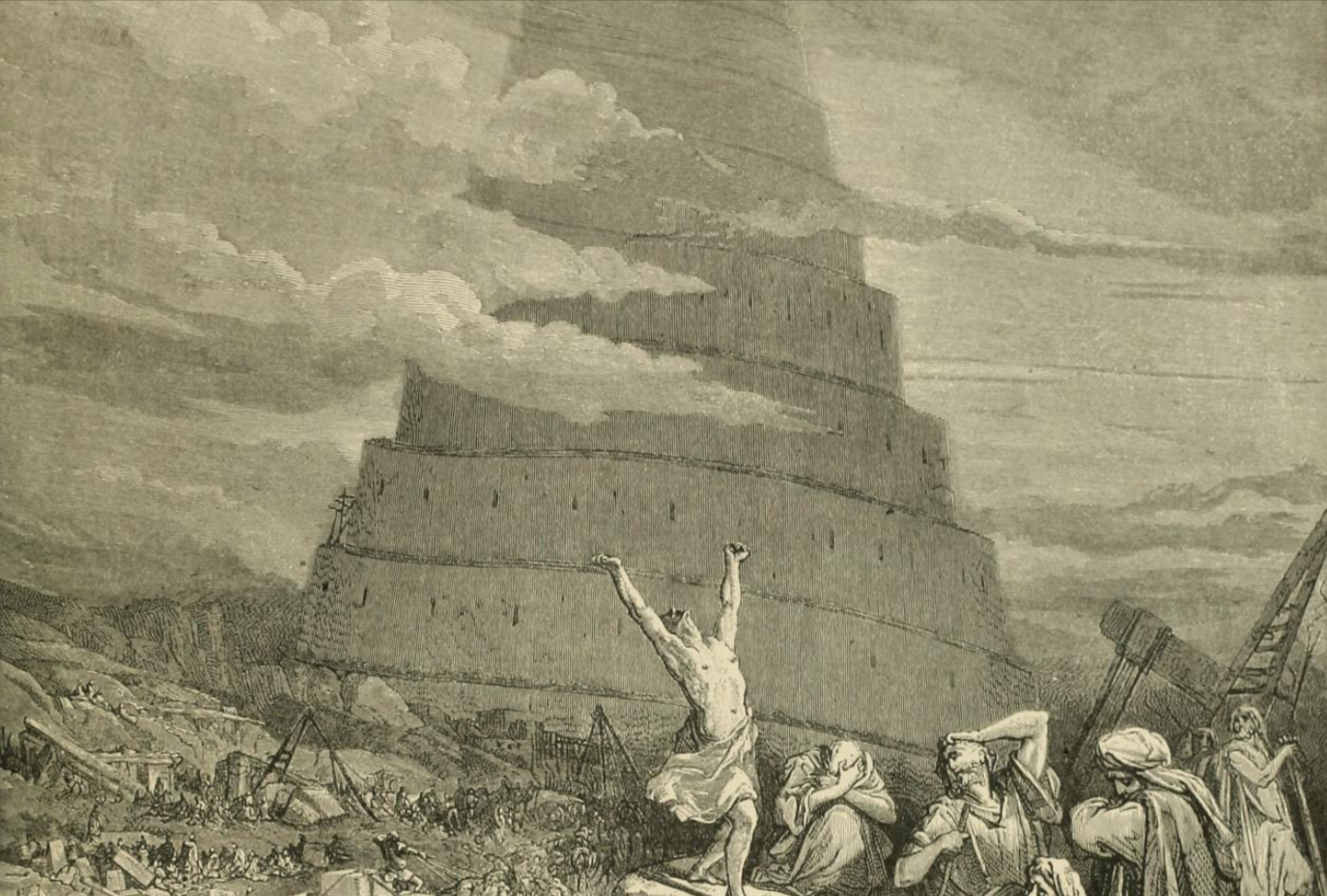These verses are about what was the origin of Sunday observance as the Sabbath, instead of Saturday, based on a chain of verses that are referenced in a specific order to help give clarity and context.* It has very minimal commentary so that you can do your own self-reflection and discovery of the verses. Many times the Bible explains itself if you just know where to look.
With each group of verses, there are probing questions to help you consider what is being said. Each verse in the study is linked to an online Bible, should you want to check the context of the verses around it. Also, allowing verification of what scripture says, as well as purity of a study based only on the Bible.
1. What was Satan’s ambition?
- Isaiah 14:14 (KJV) — “”
2. When men turned from worshiping God, what did they worship?
- Deuteronomy 17:3 (KJV) — “”
- Jeremiah 10:2 (KJV) — “”
3. What was the particular god of all heathen worship?
- The sun. (Exodus 32:1-8 KJV) — “”
- The calf was the Egyptian sun god, sun worship. (Numbers 25:1-4 KJV) — “”
The golden calf was a representation of the sacred bull called Apis, which the Egyptians worshiped, and with which the Israelites had necessarily become very familiar during their long
— Chambers’ Encyclopedia.
sojourn in Egypt. Concerning this god Apis and what it signified, we find the following: “Apis, the bull worshiped by the Egyptians, who regarded it as a symbol of Osiris, the god of the Nile, the husband of Isis, and the great divinity of Egypt.”
“All the mysteries of the Egyptians, and their whole doctrine of the future state, attach themselves to this worship [of
— Encyclopedia Britannica.
Osiris]. Osiris was identified with the sun. . . . Sun worship was the primitive form of Egyptian religion, perhaps even pre-Egyptian.”
4. Who was being worshiped in all heathen worship?
- Deuteronomy 32:16-17 (KJV) — “”
5. Why did the devil want worship?
- To be like the Most High.
6. When God’s own people, Israel, turned from Him, to what did they go?
- 2 Kings 23:4-5 (KJV) — “”
- Jeremiah 7:27-29 (KJV) — “”
- Jeremiah 9,10 (KJV) — “”
- Ezekiel 6:4 (KJV) — “”, Margin, sun images.
- Ezekiel 8:26 (KJV) — “”, Sun worship.
7. What day was dedicated to sun worship?
“Sun-day, so called because this day was anciently dedicated to the sun, or to its worship.”
— Webster’s Dictionary.
“Sunday, the wild solar holiday of all pagan times.”
—The North British Review.
8. When they turned to sun worship, how did they treat God’s Sabbath?
- Ezekiel 20:13,16,24 (KJV) — “”
9. What message did God send to them to save them?
- Ezekiel 20:19-20 (KJV) — “”
- Jeremiah 17:21-27 (KJV) — “”
10. When Christ was on earth, were the heathen still worshiping the sun?
- Rome ruled the world, and sun worship was the principal form of worship.
11. What day did Jesus and all associated with Him observe?
- The seventh day, Sabbath. Luke 4:16 (KJV) — “”
12. What change did the apostle Paul say would come over the church?
- 2 Thessalonians 2:3-4 (KJV) — “”
“The theology of this [fourth] century began to be much adulterated and corrupted with superstition and heathen
— “Church History,” Rev. James Wharey, cent. 4, sec. 7, pp. 60, 61.
philosophy. Hence are to be seen evident traces of excessive veneration for departed saints, of a belief in a state of purgatory for souls after death, of the celibacy of the clergy, of the worship of images and relics, and of many other opinions, which in process
of time almost banished the true religion, or at least very much obscured and corrupted it. . . . The same regard was paid, and efficacy was ascribed, to their temples, to water consecrated in due form, and to the images of holy men, that the heathen had paid to their temples, statues, and lustrations, long before. Images, however, were as yet but rare, and statues did not exist. The same worship began now to be paid to the martyrs which the pagans had paid to their gods, which were only deified men. From these specimens we may readily imagine how much injury resulted to Christianity from the peace and prosperity procured by Constantine, and from an indiscreet eagerness to allure the pagans to embrace this religion, by conforming to their rites and superstitions. Indeed, almost every error, either in doctrine or in form, may be traced to this source, its prototype may be found either in heathen philosophy or in the rites of pagan worship.”
13. From what would the church fall?
- From the standard of the word of God. Acts 20:29-30 (KJV) — “”
- What would come into the church then?—The man of sin. 2 Peter 2:1-2 (KJV) — “”
14. What would this power attempt to do?
- To change the law of God. Daniel 7:25 (KJV) — “”
- Does the Roman Catholic Church claim to have changed the Sabbath to Sunday?
“Opposition to Judaism introduced the particular festival of Sunday very early, indeed, into the place of the Sabbath.
— Neander’s “History of the Christian Religion and Church,” p. 186.
. . . The festival of Sunday, like all other festivals, was always only a human ordinance, and it was far from the intention of the apostles to establish a divine command in this respect, far
from them, and from the early apostolic church, to transfer the laws of the Sabbath to Sunday. Perhaps at the end of the second century a false application of this kind had begun to take place; for men appear by that time to have considered laboring
on Sunday as a sin.”
“Unquestionably the first law, either ecclesiastical or civil, by which the Sabbatical observance of that day is known to have been ordained, is the edict of Constantine, 321 A. D.
— Chambers’ Encyclopedia, art. “Sabbath.”
“It was the Catholic Church which, by the authority of Jesus Christ, has transferred this rest to the Sunday in remembrance of the resurrection of our Lord. Thus the observance of Sunday by the Protestants is an homage they pay. in spite of Themselves, to the authority of the [Catholic] church.”
— “Plain Talk About the Protestantism of Today,” Mgr. Segur, p. 213.
This study guide was based on Reading No. 14, pages 108-109 from Brief Bible Readings for Busy People,
prepared by the Home Missionary Department
of the General Conference of Seventh-day Adventists.
Review and Herald Publishing. Published originally in 1930.
View the original study guide, which this guide is based on, as a scanned PDF. Full credit to them.
*A Bible chain reference is a system of cross-referencing between different passages or verses of the Bible to connect and relate different concepts, themes, or topics mentioned in different parts of the Bible. It helps readers gain a deeper understanding of the overall message and meaning of the text. To use it, readers start with a particular topic or theme and then look up the corresponding list of verses, paying attention to the connections and relationships between them. Studying them in a particular order, helps one understand the topic from beginning to end. Just like peeling the layers off of an onion. It’s a useful tool for anyone looking to deepen their understanding of the Bible and its teachings.


Leave a Reply